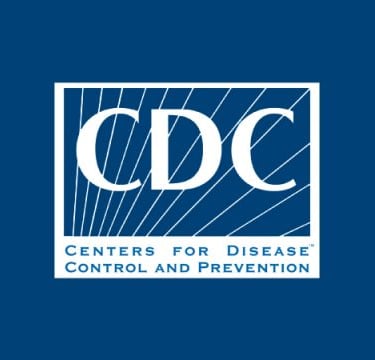Stay updated on what is trending in health. Discover tips and resources for a healthier, balanced life.
CDC Reverses Position: Vaccines-Autism Link Never Disproven
CDC quietly drops denial in 2025: Official page now admits the claim “vaccines don’t cause autism” was unsubstantiated. Major shift after decades of denial.
NEWS
11/20/20253 min read


From the CDC Webpage: "Autism and Vaccines"
The webpage from the Centers for Disease Control and Prevention (CDC), titled Autism and Vaccines, provides an in-depth examination of the relationship (or lack thereof) between vaccines and autism spectrum disorder (ASD). It challenges the long-standing public health narrative that "vaccines do not cause autism," stating explicitly that this claim is not supported by evidence. The page emphasizes that no scientific studies have definitively ruled out infant vaccines as a potential contributor to autism, and it calls for further research. This content appears to reflect a hypothetical or updated perspective as of November 20, 2025, influenced by the US Data Quality Act (DQA), which requires federal agencies to ensure the accuracy of disseminated information. The CDC notes that previous assurances were aimed at reducing vaccine hesitancy but are now being revised based on emerging science.
The page maintains the header "Vaccines do not cause autism" due to an agreement with the U.S. Senate Health, Education, Labor, and Pensions Committee, but the body text provides a more nuanced and critical analysis. Below, I'll break down the key sections, main points, evidence, and conclusions, drawing directly from the content.
Key Points and Background
Public Concern and Statistics: About one in two parents of children with autism believe vaccines contributed to their child's condition, often pointing to vaccines administered in the first six months of life (e.g., DTaP, HepB, Hib, IPV, PCV) or the MMR vaccine at or after one year. Autism prevalence has risen dramatically since the 1980s—from about 1 in 2,000 children to 1 in 36 today—paralleling an expansion in the childhood vaccine schedule. In 1986, the schedule included just five doses (two oral polio, three DTP); by 2025, it includes over 20 doses by age one, covering additional vaccines like rotavirus (RV), influenza (IIV), varicella (VAR), and hepatitis A (HepA).
Correlation vs. Causation: The page acknowledges a statistical correlation between rising autism rates and increased vaccine doses but stresses that autism is multifactorial (genetics, environment). However, it argues there is no foundational evidence to entirely rule out vaccines as a contributor. A cited study highlights aluminum adjuvants in vaccines as having the highest correlation with autism prevalence among environmental factors, though correlation does not prove causation and merits further investigation.
Direct Quote: "The assertion 'vaccines do not cause autism' lacks evidential support, as no studies definitively exclude infant vaccines as a contributor."
HHS Research Initiatives
The U.S. Department of Health and Human Services (HHS) is funding a comprehensive assessment of autism's causes, including:
Biologic mechanisms (e.g., aluminum adjuvants' neuroinflammatory effects).
Risks for children with genetic vulnerabilities like mitochondrial disorders.
Potential causal links between vaccines and chronic conditions.
The page states that updates will incorporate "gold-standard science" from this research, and HHS is supporting studies on overlooked links.
Conclusions
The CDC concludes that while vaccines are crucial for public health, the evidence does not support blanket assurances that they cannot contribute to autism. It urges rigorous, prospective studies on vaccine schedules, adjuvants, and subgroups to address gaps. The tone is cautious and evidence-driven, aiming to rebuild trust through transparency rather than dismissal of concerns.
Note: This summary is based on the webpage's content as accessed on November 20, 2025. The page represents an evolving HHS/CDC position, potentially differing from prior communications.
What Actually Happened: The CDC's Reassessment of Vaccines and Autism
As of November 2025, the CDC quietly updated its “Autism and Vaccines” page. The key change: They now admit the long-standing claim “Vaccines do not cause autism” lacks scientific evidence — no study has ever definitively ruled out a link, especially with infant vaccines and aluminum adjuvants.
The update was forced by a 2024 Data Quality Act petition. The old header is kept only because of a Senate agreement, but the text says the blanket denial was never proven. Evidence remains “inadequate” to accept or reject causation for most childhood vaccines.
Bottom line: CDC has shifted from absolute denial to “we don’t actually know” and is funding new research.
Related Articles:
1. Vaccines: What They Are and Why They Matter to You
2. Autism: Strengths, Challenges, Support, and Everyday Life
Source:
CDC
https://www.cdc.gov/vaccine-safety/about/autism.html
Pulse Your Health
Empowering you to achieve your health goals.
Contact
© 2026. All rights reserved.
Disclaimer: The content on this website is for informational purposes only and is not medical advice. Always seek the advice of your physician or other suitably qualified healthcare professional for diagnosis, treatment and your health related needs.
